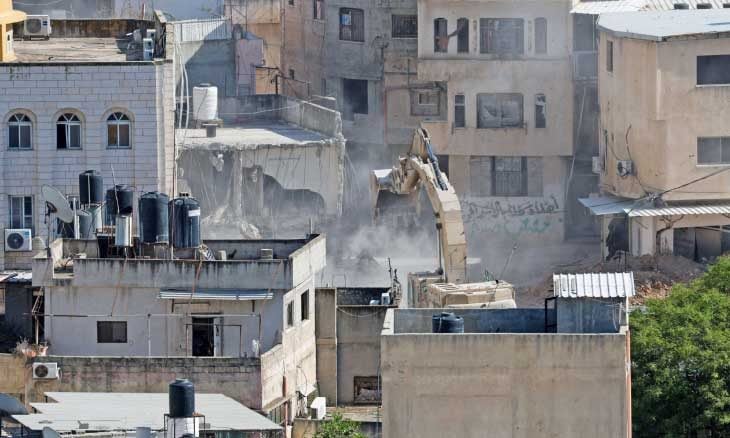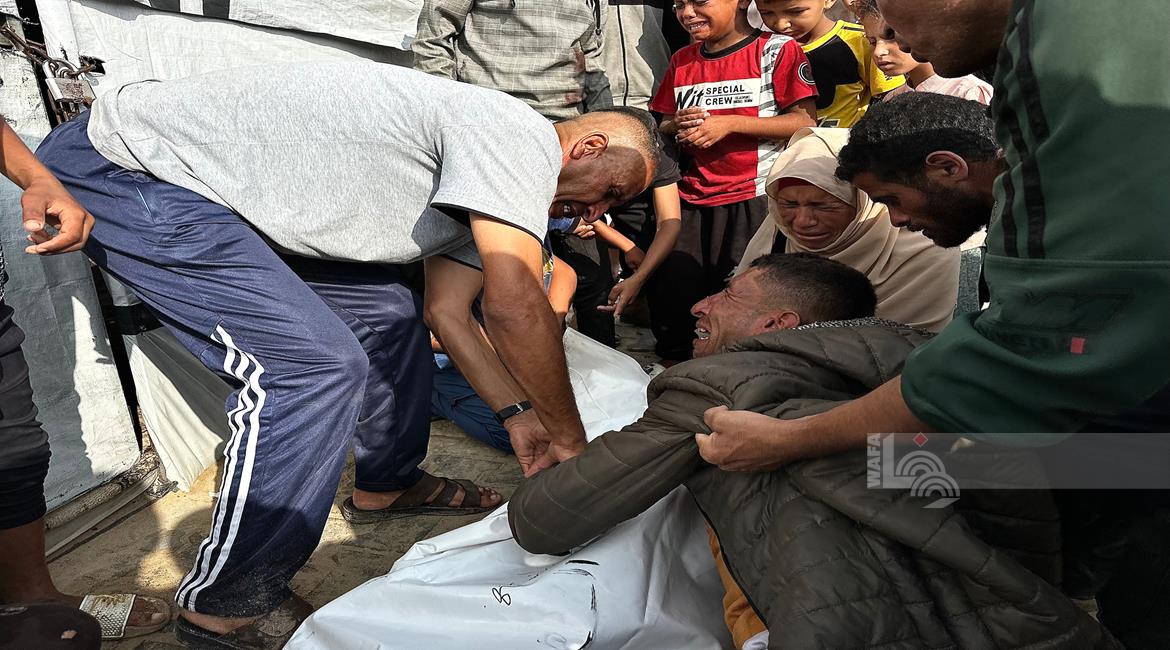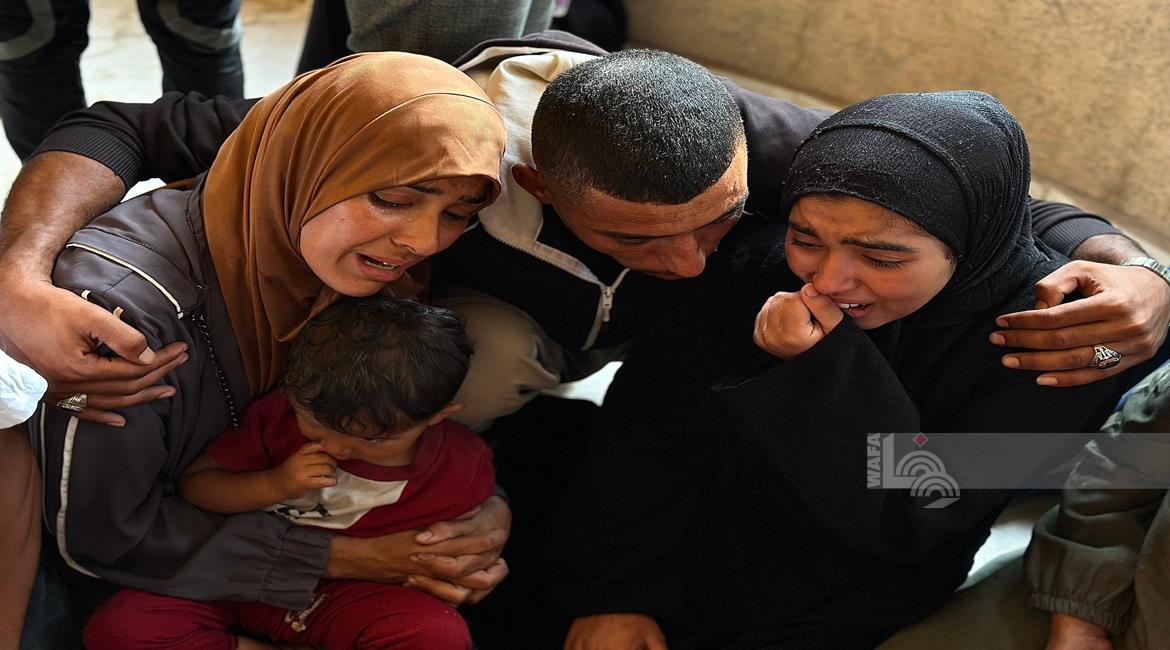RAMALLAH August 3, 2016 (WAFA) - Nabeel Kassis, Director General of the Palestine Economic Policy Research Institute (MAS) announced the convening of the “MAS Economic Conference 2016” on August 31, under the auspices of Prime Minister, Rami Hamadallah.
The Conference, titled “Towards a New Vision for the Revival of the Palestinian Economy” is expected to attract participants from all relevant sectors, including state economic bodies, private sector, civil society, academic and economic experts from Palestine and abroad, in addition to representatives of the international community interested in the Palestinian economy.
Kassis affirmed that the key objective of the conference is to craft a national vision that encompasses the main findings of the four economic symposia that were convened since April, involving experts from all sectors as well as the academic community.
The conference will plan a feasible work program to resolve those socio-economic problems that are amenable to alleviation that would reduce their detrimental effects on the Palestinian economy in light of the continuation of adverse conditions, primarily Israeli Occupation.
Kassis explained, “We seek to achieve through this important conference a national consensus for an economic vision over the medium term that can remedy socio-economic hardships burdening the Palestinian people, in order to enhance steadfastness and resilience, while the journey continues toward liberation and the establishment of the independent Palestinian State.”
He added that given its leading role as a Palestinian research institute specialized in socio-economic policies, MAS had a special responsibility to draft proposals for concrete action that constitute a guide in the drafting of national programs to solve these issues based on scientific methodology and analysis.
"It was thus incumbent upon MAS to bring together all relevant stakeholders from academia, research institute, private sector and government in order to deliberate a proposed national economic vision, at a moment that Palestine is witnessing increased levels of unemployment, poverty, and development disparities, compounded by a tightening of the restrictive regime imposed by occupation and uncertain international aid."
This conference and the ensuing vision would constitute an incentive to forge ahead, rejecting submission to despair and allowing wide-based cooperation to support communities and institutions in this battle for resilience and liberation.
Kassis recalled that the conference and the preceding preparatory symposia organized by MAS enjoyed full support of the Prime Minister and rallied the participation of a wide range of government and private sector institutions in addition to civil society organizations and academia.
The preparatory consultative process has helped to promote a consensus around the importance of convening the conference.
All parties stressed that the key outcomes of the conference should come in the form of practical recommendations for tackling socio-economic problems and a work program that is realistic and implementable.
The conference has also attracted main sponsorship from the following institutions in alphabetical order: Bank of Palestine (BoP), Consolidated Contractors Co. (CCC), National Beverage Co., Palestine for Development Foundation (PsDF), PADICO Holding, and PALTEL Group.
The conference also benefited from secondary sponsorship from: Birzeit Pharmaceutical Co, Safad Co., Nassar Stone, and Sinokrot Global Group.
Samir Hulileh, Chairman of the board of trustees of MAS also commented that the importance of the MAS Economic Conference “arises from the fact that it is an authentic Palestinian effort in terms of content and organization and comes at a very crucial and sensitive time, when the Palestinian people and their leadership are facing plans to derail the establishment of a sovereign Palestinian State with control over its borders and natural resources.
Such resources if enabled can create sustainable economic development with a prosperous future for the next generation of Palestinians.
The press release added that the conference reflects calls for a professional, scientifically based dialogue involving all sectors in order to come up with a package of policy recommendations and interventions that are implementable on the ground.
These recommendations will be provided to public sector and all civic society organs in order to guide efforts to confront the upcoming challenges and thus empower the institutions of the Palestinian State and partner civic society organizations with the tools to create a solid economic revival that can cater to the needed development goals on the short and midterm levels despite growing challenges and obstacles.”
Hulileh added that what makes this conference different from others is that it constitutes the results of a deep analytical thought process involving scientific methodologies and lengthy discussions amongst all relevant parties in Palestine.
“Such process strengthens joint dialogue and efforts by these relevant sectors, hence effectively supporting the over-arching national interests of the Palestinian people in liberation and independence.”
This process is the best way to ensure instilling a sustainable dialogue between all socio-economic sectors in Palestine, ensuring effective action toward economic revival and steadfastness, he explained.
Raja Khalidi, MAS Research Coordinator and Conference Coordinator, added that MAS is continuing the process of engagement and consultation with all stakeholders, methodologically accumulating all inputs in order to shape the most realistic and relevant national policy recommendations.
“Our job is not only to manage a process of convening stakeholders, but more importantly to ensure that the content of the conference is reflective of a national agenda that can efficiently tackle socio-economic challenges in the near and medium terms, connecting these recommendations with the holistic national vision of liberation and removing the shackles of occupation.”
Khalidi concluded that efforts to convene the conference tended to be exhaustive in ensuring an inclusive dialogue and a participatory approach.
They included the organization of technical symposia overseen by specialized researchers in cooperation with partners from academia and the private sector, as well as dialogue with heads of parliamentary factions, government institutions, civil society organizations and private sector institutions.
M.H












